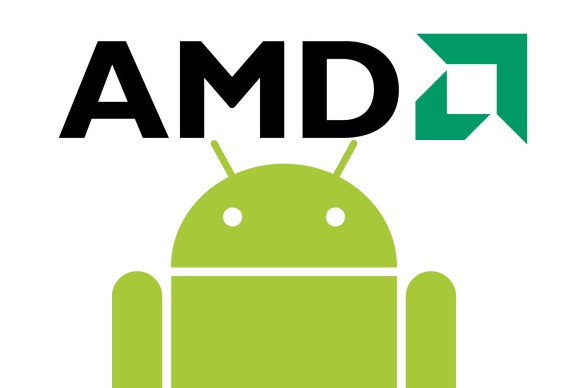
Now that mobile is clearly the future and with Qualcomm and NVIDIA doing well in the space, AMD looks to take on the competition (and Intel) by ending their exclusive Windows presence. Advanced Micro Devices (AMD) has long stuck to Microsoft’s Windows OS, as well as graphics cards, but we’re now hearing the company aims to take on Android and Chrome OS.
Intel has been trying to break into the mobile space for some time. They’ve managed to show up in a few high profile devices like the Motorola RAZR M last year, and recently got the bid for Samsung’s upcoming Galaxy Tab 3 10-inch tablet. With things only looking to increase, AMD wants a piece of the silicon pie.
The news comes to us from an interview at Computex where Lisa Su, Senior VP of global business units at AMD, had a few thoughts and comments to share regarding the future, and Android. It looks like AMD will be expanding their reach and OS options moving forward.
“We are very committed to Windows 8; we think it’s a great operating system, but we also see a market for Android and Chrome developing as well.”
Now I don’t know about you guys, but “market for Android developing” is an understatement and something we’ve seen for years, and it hasn’t slowed down one bit. Lisa Su went on to say “AMD is also expanding its custom-chip business, and Android and Chrome OS offer flexibility for third-party chip design and integration.”
With x86 processors finally being accepted and running great with Android, Intel has taken the lead here, and AMD will have to play some catch up and offer 4G LTE out of the gate. It’s a tough market already with Qualcomm, NVIDIA, and Samsung offering amazing options already, not to mention Texas Instruments recently bailed out. Which should show you just how tough and competitive this market really is.
Lisa Su didn’t have any direct comments regarding when we can expect anything to arrive, or even a remote timeframe, but surely they are already hard at work developing their next mobile chip. AMD already has plenty in the pipes for Windows 8 tablets, but they’ll need to keep working if they plan to enter Android smartphones and tablets.
VIA: PCWorld










I wouldn’t be surprised if the parts they make for mobile are not x64 based but ARM, they seem to be tooling up to go in that direction.